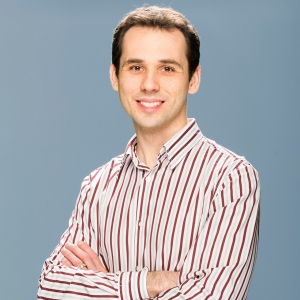
3:30 pm to 4:30 pm
1305 Newell Simon Hall
Abstract:
As humanity returns to the Moon and is developing outposts and related infrastructure, we need to understand how robots and work machines will behave in this harsh environment. It is challenging to find representative testing environments on Earth for Lunar and planetary rovers. To investigate the effects of reduced-gravity on interactions with granular terrains, parabolic flights subject not just the robot but also the soil grains to effectively reduced-g; this technique has enabled us to study the reductions in traction and the increases in sinkage and associated soil mobilization experienced in Lunar-g. Field testing rovers is another essential method for planning future Lunar operations. Our theoretical work in optimal control, and associated experiments in a planetary analogue terrain, have led to skid-steer rover trajectories that can be 10%-20% more energy-efficient than point-turn / straight-line paths.
Bio:
Dr. Krzysztof (Chris) Skonieczny is an Associate Professor in Electrical and Computer Engineering at Concordia University and a Tier 2 Canada Research Chair in Aerospace Robotics. He completed Bachelor’s and Master’s degrees in aerospace engineering at the University of Toronto, and a PhD in robotics at CMU. He collaborates with the Canadian Space Agency, as well as NASA and the European Space Agency. His research interests include experimentation and modeling of reduced-gravity robot-terrain interactions, advanced rover and wheel design, computer vision for terrain-sensing applications, and utilizing Lunar/planetary regolith for 3D printing and construction.
